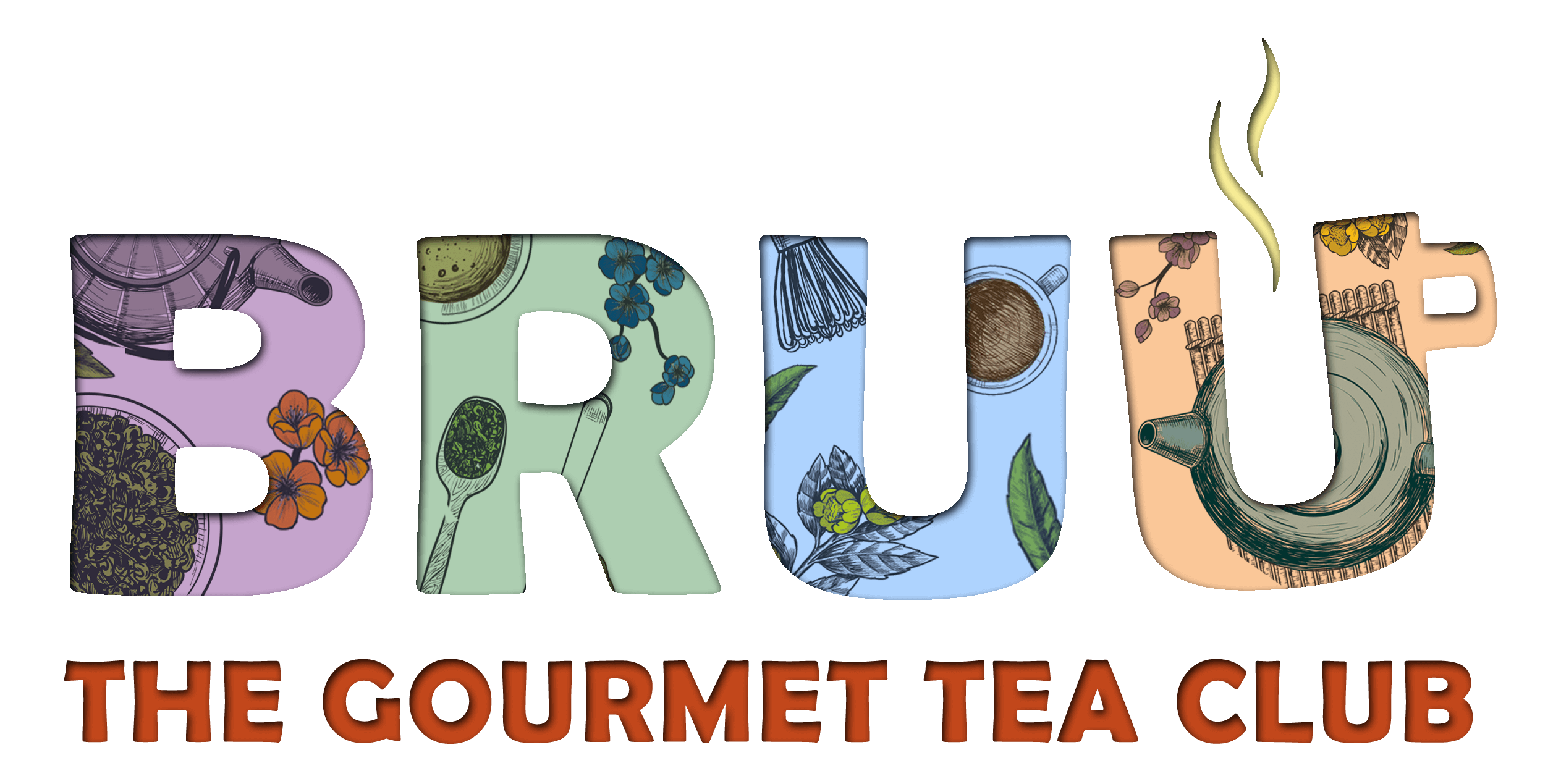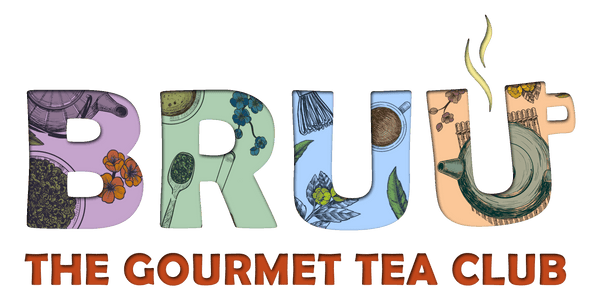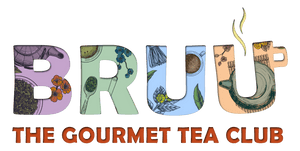The basics of tea tasting
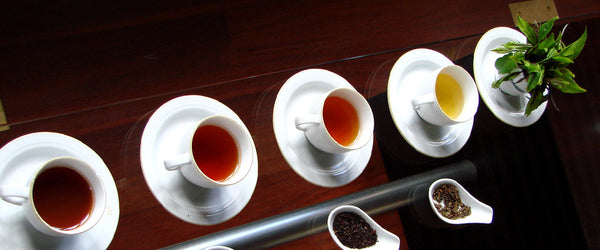
So in this week’s tea academy we’re going to look at the basics of tea tasting. It’s a process we use here at BRUU when deciding which teas to include in each member’s tea subscription box.
The first step in your tea tasting experience begins with making the perfect cup of tea so check out the Golden rules on tea storage and brewing from Module 1.
Tea tasting starts the moment you put your loose tea leaves in your cup. Look at the dry leaves - what ingredients can you identify? Smell the dry tea by closing your eyes and try to notice which smells stand out the most. Do they remind you of a plant, flower, fruit, sweet, a place or memory from the past?
Next, brew the tea paying close attention to the individual brewing instructions. Smell again as the tea is infusing in the hot water; has the smell changed? Are new ingredients coming through which you did not notice before? At this point also take a look at the tea, what colour is it, is it dark or light? Are any fragments floating around at the top or bottom of the cup? Is there an oily surface on the top of the water as the leaves release their oils? Are the leaves becoming plump and whole again?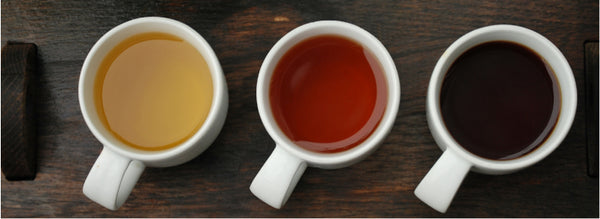
When we think of taste we usually think of the tongue but 90% of taste it done through smell. Our tongue detects five essential taste which gives us the first impressions - sweet, salty, acidic, bitter or umami (Japanese for savoury). The initial impression however can throw you off, so that is why smell is so important to help our brain build a true flavour profile.
With a clean palate take a spoonful of tea and let it roll over your tongue. Allow it to rest a second and roll it again before swallowing. It’s a very similar swilling process to wine tasting and this technique helps to activate as many of your taste senses as possible.
How is your tongue, throat, stomach and palate reacting to the drink? Ask yourself a few questions:
- How does the tea taste? Is it smooth, bitter, floral, mellow, sweet?
- Does part of taste come first and some later?
- Does the aroma linger? Which part lingers longer and which shorter?
- What do the different parts of the taste remind you of?
- Does an ingredient dominate the taste or can you notice background flavours?
- Do you feel the taste elsewhere? In your throat, stomach?
- What is the texture of the tea?
- Which part of your tongue gives you the sensation of taste?
- How does the tea make you feel?
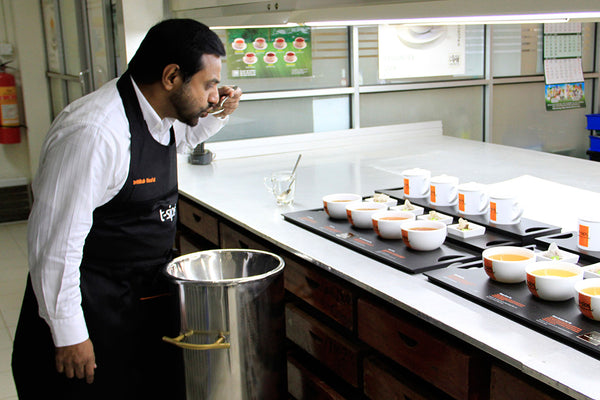
You can make notes throughout your tasting experience which are useful to refer back to when trying new teas in the future. Tea tasting is a skill and the more you practice the faster you'll get at identifying flavours and enhancing your senses.
Tea tasting is also great with a few friends, it will be interesting finding out the different smells and tastes that stand out to different people.
